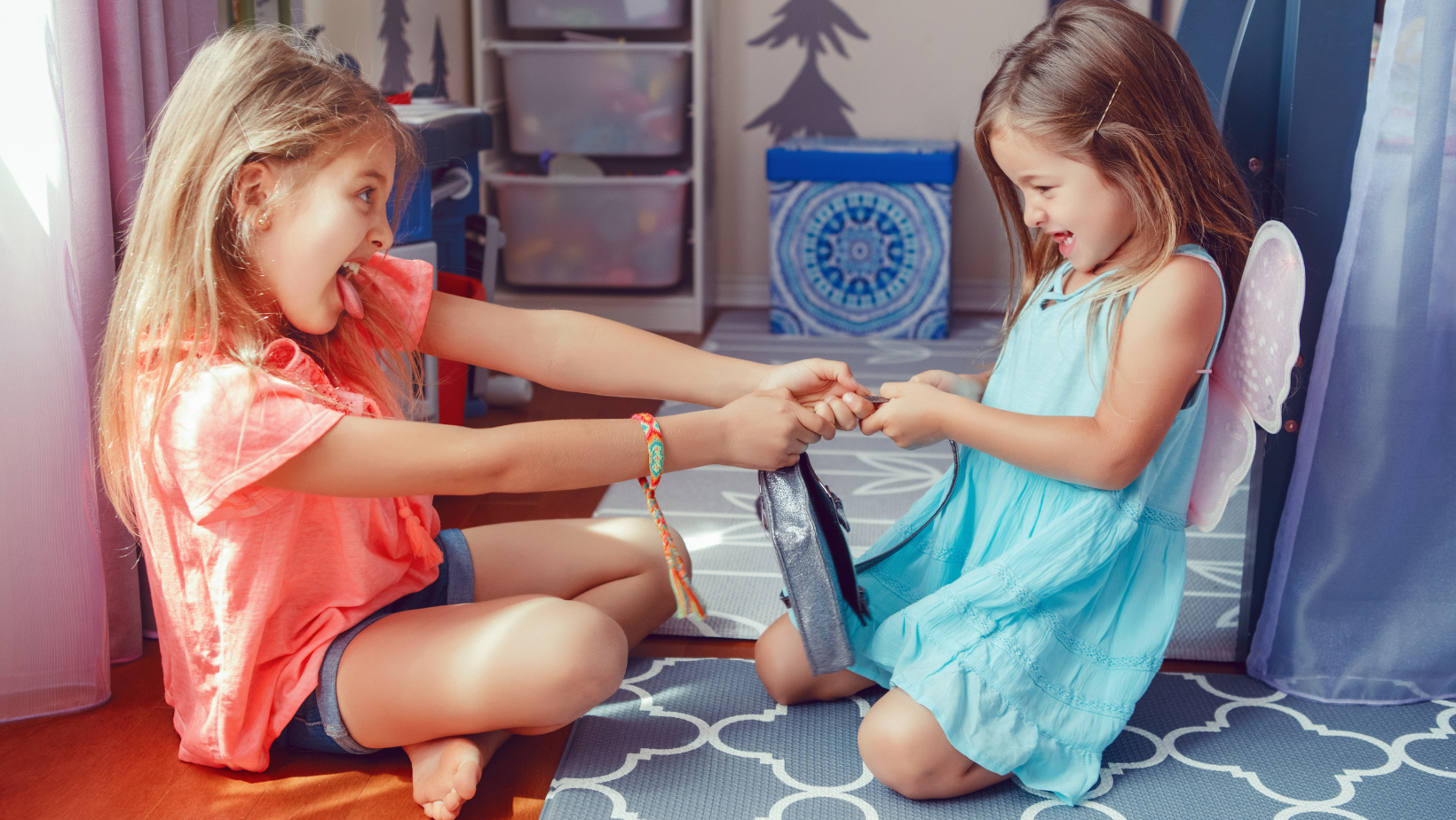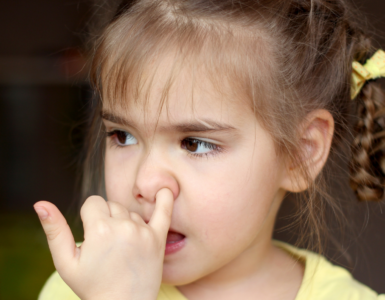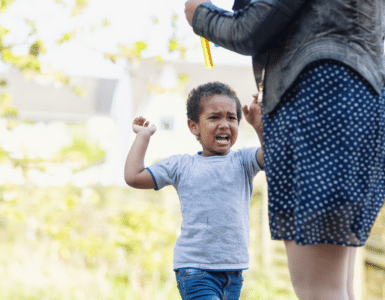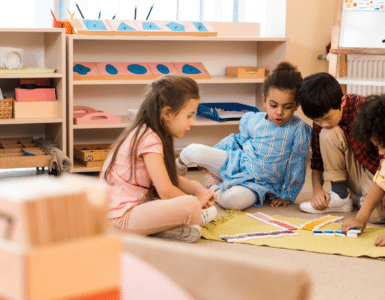Often, kids are told that they must share their toys or space with other children because parents (understandably) want to raise kids who are kind and considerate of others.
While raising compassionate humans is one of my goals in parenting, I decided a long time ago to toss the idea of “sharing” in favor of turn taking. You might think, “What’s the difference between sharing and taking turns? Aren’t they the same thing?” While they are very similar, there are a few key differences.
Here are a few reasons why my kids don’t have to share, and why we practice taking turns instead.
Focusing on consent and autonomy
The first time I heard that it is okay for kids not to share, I was a bit skeptical.
But then, I was asked to consider how I would react if a stranger ran into my home and demanded to be allowed to use my cell phone. Chances are pretty good I would say no! I would also be well within my rights to make a scene and even call the police.
ALSO: Does Self-Directed Learning Breed Success?
For kids, it can be a similar feeling to have sharing of their space and toys required of them without any explanation. Just having an adult say “because I said so” doesn’t really cut it. Because we try to teach the importance of consent, personal boundaries, and autonomy in our home, this type of sharing just didn’t seem to line up.
Practicing good communication
When a child demands a toy and their parents immediately step in and enforce sharing, they might begin to learn that whoever yells loudest gets what they want. The child being asked to give up the toy might also begin to assume that we are supposed to just give demanding people what they want in order to keep them calm.
ALSO: 3 Ways Parents Might Accidentally Sabotage Their Child’s Education
As adults, we know this isn’t how good communication works. Being guided in how to calmly ask if you can have a turn when your friend is done with their toy is a good opportunity to practice healthy conflict management, even at a young age.
Teaching age-appropriate empathy
Young children don’t actually have the capacity yet for true empathy… but we can start to set the stage of thinking about others and treating them kindly right away! Reminding a child to hand the toy they are done with to the person who was waiting their turn is a very simple way to start incorporating attentiveness and consideration toward their playmates and friends.
ALSO: Tesla Safety Critic Says Self-Driving is Dangerous for Kids
There isn’t a right or wrong way to teach your kids to be kind and considerate of others. You know your kids better than anyone, and if sharing is something that works for your family, go for it!
These are just some ideas we have come to embrace as we search for ways to teach consent, autonomy, respect, and patience… at least for now. But then, parenting does always have a way of keeping us on our toes.










Add comment